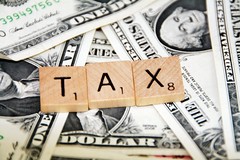Any discussion of the looming fiscal cliff must address the impact on green initiatives as any budget cuts or tax increases will adversely impact the efforts of both families and businesses to go green. With the realization that compromises will have to be made on both sides across the aisle, it remains important that our elected representatives focus on the fact that governmental spending need to include investment in human and physical matters that will pay dividends in the future. A green economy qualifies for such investment because its tenets lead to a healthier society and an environmentally friendly world.
Several of the tax incentives for living green were derived from the Bush era tax cuts, which are scheduled to expire at the end of this year if not renewed by Congress, thus creating the looming fiscal cliff. A few notable ones to mention are as follows:
- The residential energy efficiency credit. This credit is given to homeowners who purchase high energy-efficient appliances and home improvements. Many Americans have received reductions in tax liability through the use of these credits while at the same time making their homes more energy-efficient.
- The American Opportunity Credit. This credit provides a $2500 tuition tax credit, thereby enabling more people to go to college. This opportunity directly affects the potential pool of trained people needed in the research and development of green technology and the direct training needed for operation of green industries.
- The payroll tax credit. Taxpayers will see a decrease in their take home checks if this credit expires, thus impacting their ability to exercise healthier choices in the purchase of foods and organic products.
- The production tax credit (PTC). This credit subsidizes wind power by 2.2 cents a kilowatt hour. This is important to states and localities working hard to establish wind power as an alternative energy source.
As the discussion and bargaining proceed over the next few weeks, it is important that we advocate our positions on green initiatives which will be affected by budget decisions. Now is the time to contact your congressmen by phone or email and state your position on these issues. Today’s investment of time will reap tomorrow’s dividends. Let’s live green, be green.
Sources:
http://online.wsj.com/article/SB10001424127887324073504578104464153878672.html?mod=rss_economy
http://topics.nytimes.com/top/news/business/energy-environment/wind-power/index.html

